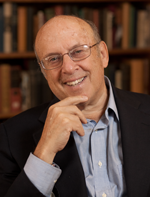
Jeffrey Carduner, Aesthetic Realism consultant, writes:
How can we see what we don’t like in the world? Is there a way to see what we cannot like—including what’s fake and unjust—in a way that is lively, hopeful, and very kind? Read wonderful, thrilling answers in “The Deepest Kind of Cleverness,” the new issue of The Right of Aesthetic Realism to Be Known!
The commentary by Ellen Reiss begins:
Dear Unknown Friends:
We have reached the conclusion of Eli Siegel’s great 1949 lecture Poetry and Cleverness. In this final section, to illustrate what cleverness is, he uses passages from Samuel Butler’s Hudibras, a satiric poem cared for immensely from the time it was first published, in 1662.
Cleverness is something people want very much to have; yet they also despise themselves for their cleverness. It’s something they both admire and detest in others. There is a tremendous mix-up in people about cleverness, because the difference between good cleverness, beautiful cleverness, and ugly, hurtful cleverness has not been understood. As I wrote in the last issue, we can distinguish between these only through knowing about the fundamental fight Aesthetic Realism has shown to be in every person: the constant fight between the desire to respect the world honestly and the desire to have contempt for it. Authentic cleverness comes from respect for the world. False cleverness—and that includes cruel, sleazy cleverness—comes from contempt for the world.
And here is a big reason for this lecture’s importance: through seeing what cleverness is, in art and elsewhere, we can know what we are looking for, tumultuously aching for, in ourselves. The following landmark Aesthetic Realism principle is true about cleverness: “All beauty is a making one of opposites, and the making one of opposites is what we are going after in ourselves.”Cleverness, Mr. Siegel has been showing, always brings together (whether truly or falsely) the opposites of difficulty and ease, largeness and smallness. To be clever, he says, is to do “something that people would think hard, with ease.”
The most awful, vicious, filthy, harmful “cleverness” is also enormously frequent. It is the cleverness of making that largest of things, TRUTH, something oneself can manage, toy with, treat lightly.
There Are Beauty & Contempt
At the end of his lecture, Mr. Siegel speaks about what he calls “the deepest kind” of good cleverness. It is that which looks honestly at the “burdensome,” the “horrible,” and through the honesty gets to lightness. So it is right to follow the final section of Poetry and Cleverness with a poem by Eli Siegel himself, a poem that has magnificently, thrillingly, this “deepest kind of cleverness.”… Read more